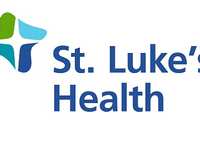- Sections :
- Crime & Public Safety
- Restaurants & Food
- Sports
- More
Memorial Hermann Healthcare System honored by Texas Hospital Association

THE WOODLANDS, Texas –– For its efforts to reduce the incidence of health care-acquired infections across its 12 hospitals, Memorial Hermann Healthcare System in Houston has been honored with the Texas Hospital Association’s 2011 Bill Aston Award for Quality in the Academic Large Teaching Hospital category.
Established in 2010, the award recognizes a hospital’s measurable success in improving quality and patient outcomes through the sustained implementation of a national and/or state evidence-based patient care initiative. Juan Inurria, system executive for quality and patient safety, will accept the award today at the THA Annual Conference and Expo in Austin.
In 2006, the health system’s board challenged Michael Shabot, M.D., the system’s newly appointed chief medical officer, to lead MHHS to a zero HAI rate, and make that change sustainable across all 12 hospitals. For a health care system providing 732,000 days of care to 135,000 patients annually, that was no small task. The initiative required an organizational culture change to make error prevention fundamental to business operations.
A 50-member multidisciplinary task force led by Dr. Shabot and Inurria mapped out processes, determined evidence-based practices to implement and rolled out “bundles” of evidence-based processes to reduce central-line associated blood stream infections and ventilator-associated pneumonia. In addition, responsibility for infection control was shifted from infection preventionists to the intensive care unit directors who managed team performance, which made everyone accountable.
MHHS also introduced comprehensive reporting measures for every team involved in infection control. Monthly operational reviews, self-assessment frameworks and strategic action plans contributed to the ongoing improvements. Transparency was key. Bundle compliance rates were posted in clinical units and public areas, and progress was reviewed in interdisciplinary meetings. Daily and weekly audits became part of the process.
MHHS upgraded its electronic medical record system in 2009 to integrate bundle compliance with all clinical documentation. The system triggered daily reviews of patients with invasive medical devices, causing interventions to soar and infections to fall. The data also provided evidence that following the processes produced results.
In 2011, MHHS joined a collaborative project with The Joint Commission to improve hand hygiene. MHHS systematized the way in which it collected hand hygiene compliance data and pinpointed factors causing noncompliance. In five months, MHHS saw its system wide compliance rate rise from 44 to 83 percent, and the goal now is to achieve 90 percent compliance by everyone entering and exiting a patient’s room.
“Eliminating hospital acquired infections is just one part of Memorial Hermann’s High Reliability safety program,” explained Dr. Shabot. “Our goal is to eliminate all potential sources of patient harm from all our facilities. Over the past two years, our hospitals have eliminated specific types of harm for a minimum of 12 consecutive months 40 separate times. This means the occurrence of those events was zero for more than 48 months. That’s high reliability.”
Five years since the board challenged Dr. Shabot, the system’s central-line associated blood stream infection rate has plunged by 86 percent, the adult ventilator-associated pneumonia rate is down 81 percent and one hospital – Memorial Hermann Northwest – has achieved a full year with zero infections for both.
“This is quite an impressive achievement,” said Dan Stultz, M.D., FACP, FACHE, president/chief executive officer of the Texas Hospital Association. “Memorial Hermann is a role model for other large systems, and this prestigious award recognizes the system for its discipline and commitment to improving patient care.”





